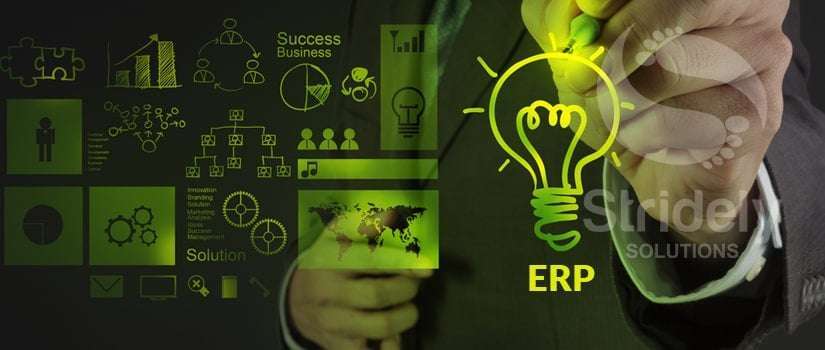We get to hear a lot about the manufacturing industry, the transportation sector, the IT domain, and even the healthcare department. Little is known is said or heard about the Energy and Utilities industry, right?
Even if that’s true, the industry exists and is, without a doubt, one of the most spectacular segments today. Experts of the domain consider it to be undergoing a revolutionary phase with growth domination. There are plenty of operations and multiple requirements that don’t seem to halt in the foreseeable future. In fact, demand is only expected to rise. Maintaining assets, monitoring productivity, mapping the needs of natural resources and adhering to the market demands, the Energy and Utilities Industry has to deal with all.
Performing all of the above distinctly is a cumbersome and daunting task. Also, manual execution can cause errors, let alone the possibility of messing up operations. To deal with this, organizations are proactively advancing towards the adoption of ERP solutions.
What’s ERP For Energy and Utilities?
Gone are the times when industries were in search of traditional methodologies to organize their job and streamline operations. With the onset of digital tools, competition has risen to an extremely high level. In order to succeed, organizations need to provide business-specific services and in a way that maps the expectations of all. ERP software solutions are tailored to do the same.
Robust and scalable solutions, ERP software is designed to map the needs of a business in a cost-effective manner. Right from CRM, to repair and service management, Business intelligence & reporting, or LBS, the ERP system software entails all.
Why do Business Leaders need To Invest in ERP?
True that the task of migrating the existing though siloed infrastructure to a modernized one is tiresome. Also, there is a bundle of challenges organizational managers need to face while making the move. However, the list of benefits associated with the adoption of ERP for everyday business operations is worth the pain.
Some of the advantages of using ERP solution in the Energy and Utility sector includes:
- Accelerate business productivity and increase profitability.
- ERP solution is capable of mapping all of the needs and requirements of the energy sector in an optimal manner.s
- Allow business managers to allocate and align resources with extreme efficiency.
- It simplifies the execution of operations and integrates the functionality of every module.
- Eases the intricacies related to the process and smoothens business activities.
- Enhances the rate of returns generated by optimizing tasks.
- Accounts for seamless integration with other technologies such as Bacon, BI, Big Data, Cloud Computing, etc
It is pretty obvious that modern ERP solutions are not just a fad but a comprehensive set of software that holds the ability to transform business operations and in a way that enhances the productivity of the same. No wonder why 81% of the organizations have migrated or are on the cusp of migrating towards ERP for the Energy & Utilities Industry.
Challenges Faced By the Industry
As stated above, the road to integrating ERP software suite isn’t swift and there are multiple areas that need to be considered while making the move. What’s good is the fact that ERP software owns the potential to deal with those challenges and also, curb the impact of the same.
- Issues with supply chain management
- The need to map with industrial expectations
- Attain optimal performance and increase productivity
- Deal with environment and sustenance issues
- Lower the cost of operation accounting for rising profits.
Where do the Energy and Utilities Industry Lag?
The energy and utility industry has a vast scope. Meaning that there are multiple things that need to be focused on and taken care of. Amongst the various areas of operation, the most important ones include:
-
Order Management:
With mobilization and high-end globalization, industries are no longer bounded by geographical barriers. Customers can place orders from across the globe. Keeping track of work orders becomes difficult when there are multiple channels and hence, the need for a unified module that can integrate all.
-
Billings:
Collecting cash whether physically or accepting online payments. Local customers or regional buyers, billing needs to be managed and monitored effectively. Tariff Rates to be regulated based on the country, region, and customer.
-
Asset Management:
Irrespective of the kind of industry, asset management is one such segment that requires tremendous attention. A single mismatch might cause billions to the enterprise. It is important to have an ERP solution that excels in managing assets in a few clicks without causing errors.
-
Handling Outages:
This is one of the most complicated tasks in an energy and utility sector. ERP solution helps manage and monitor tickets that have registered outages and then enable asset management that is geographically located. Often considered as a hurdle, an ERP solution can be the game-changer.
-
Increase Power Generation:
MIS reports and in-depth analysis, the adoption of ERP software suite helps manage and monitor the demand for fuel and corresponding supply to reduce the cost. Performing an exhaustive study on fuel procurement, managers can cut down unwanted spending and optimize resource allocation.
The Final Word
Having said the above, it won’t be wrong to state that the adoption of ERP software in the energy and utility sector is not a matter of choice. Instead, it is a necessary step that every organizational leader must take to improve business functionality.
However, there are a set of measures that you must take before adopting the solution. At first, an extensive study of the existing infrastructure needs to be done in order to outline the gaps. Once done, the managers can then align resources with the requirements and move ahead with the integration process. Make sure a standard is set and only the data that’s important is migrated to the new system. Stuffing all of the unwanted data tends to dampen productivity lowering efficiency.
Finally, a proper schedule needs to be maintained and a step by step process should be followed to aid the successful implementation of the technology.


